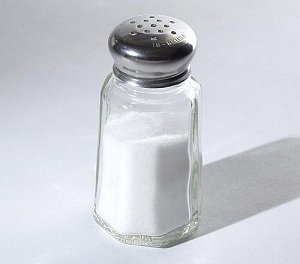Maybe The Government Doesn't Always Know What's Best

Based on what we were told was sound science, the government has been on an aggressive anti-salt campaign. In everything food-labeling regulations to actual restrictions on salt use by restaurants and food manufacturers, the government has been working hard to get Americans to consume less salt.
But now a new study finds that not only does restricting salt consumption have little or no positive health impact, it may actually hurt some people.
From the New York Times:
In a report that undercuts years of public health warnings, a prestigious group convened by the government says there is no good reason based on health outcomes for many Americans to drive their sodium consumption down to the very low levels recommended in national dietary guidelines.
Those levels, 1,500 milligrams of sodium a day, or a little more than half a teaspoon of salt, were supposed to prevent heart attacks and strokes in people at risk, including anyone older than 50, blacks and people with high blood pressure, diabetes or chronic kidney disease — a group that makes up more than half of the American population.
Some influential organizations, including the American Heart Association, have said everyone, not just those at risk, should aim for that very low sodium level. The heart association reaffirmed that position in an interview on Monday, even in light of the new report.
But the new expert committee, commissioned by the Institute of Medicine at the behest of the Centers for Disease Control and Prevention, said there was no rationale for anyone to aim for sodium levels below 2,300 milligrams a day. The group examined new evidence that had emerged since the last such report was issued, in 2005.
“As you go below the 2,300 mark, there is an absence of data in terms of benefit and there begin to be suggestions in subgroup populations about potential harms,” said Dr. Brian L. Strom, chairman of the committee and a professor of public health at the University of Pennsylvania. He explained that the possible harms included increased rates of heart attacks and an increased risk of death.
More than just evidence that the government is wrong about salt, this is a shining example of why health decisions should be left up to the individual.
Maybe – just maybe – the people will be ok if allowed to monitor their own lifestyle choices, be it salt use or soda consumption or whatever other food choices the government wants to regulate for our own good. Not only is the government often wrong in what they think is and is not healthy for us, but quite often their motives are driven more by politics than a desire for public health.







